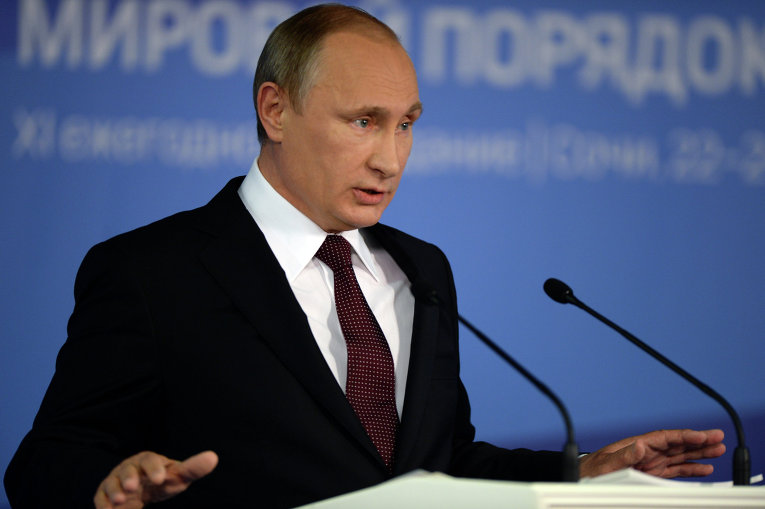MOSCOW, July 7 (RAPSI) – Russian President Vladimir Putin has signed a package of antiterrorist bills introducing among others life sentence for terrorism into law, the official spokesperson for the President, Dmitriy Peskov, told journalists on Thursday.
In addition, the President signed a list of documents ordering the government to monitor implementation of this law and if it is necessary to minimize possible risks connected in particular with financial charges and use of home equipment for information storage. The documents signed by Putin along with the bills also authorize the government to draft initiatives on minimization of such risks, according to Peskov.
On June 24, the State Duma adopted the package of antiterrorist bills. On June 29, the bills were approved by the Federation Council despite the objections of the Human Rights Council, business ombudsman, Internet companies and mobile operators.
Mobile operators insisted that the legislation would provoke steep rise in cellular service tariffs.
The bills drafted by Irina Yarovaya, head of the State Duma's Security and Anti-Corruption Committee, and Viktor Ozerov, the Chairperson of the Committee for Security of the Federation Council, propose additional ways of fight against terrorist and extremist threats as well as toughen punishment for terrorism and extremism, according to Yarovaya.
They introduce a new component of crime, international terrorism, which would be punished with prison terms ranging from 10 years to life.
Financing of international terrorist attacks and recruitment would result in imprisonment for up to 10 years.
The legislation would define new elements of crimes including “failure to report of a terrorist nature.” Offenders would face fines of up to 100,000 rubles ($1,550); compulsory labor or imprisonment for up to one year.
Public calls for terrorism on the Internet and justifying terrorism would result in fines of up to one million rubles or imprisonment for 7 years.
The legislation also touches the issue of keeping online correspondence between Internet users and provision of the respective data on demand of certain state authorities.
While the original amendments to the package of anti-terrorist bills introduced by Yarovaya and Ozerov concerned only mobile operators obliging them to keep users data, now they should include “organizers of dissimilation of information in Internet,” i.e. practically all Internet services. It is envisaged that the data including both the correspondence between users and files they exchange be kept for six months.
Internet companies would be obliged to provide law enforcement agencies with decryption keys in case the users’ correspondence or files are encoded. Those failing to provide the authorities with information on decoding of data or using uncertified encryption products should be subject to fines from 3,000 rubles ($46) for individuals to 1 million rubles ($15,500) for legal entities.



